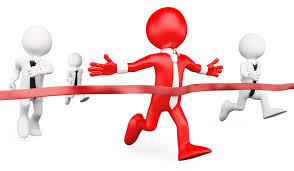What to do, with your time, your future, your life. Why does it feel that even when we know what we want to do the feeling stills exists that we are not doing enough. When I watch and/or read the news, I have a change of heart during every news segment or article I read. “I need to volunteer more for this cause” or “I need to learn more about this so I can become a better asset for a company”. We all have a difference of opinions on what is valuable in one’s life but understand that we only have one life to live. Do you chase money, social fulfillment, power, or focus on changing an issue? Maybe you can pick more than one in that group but a huge group of people are after a similar thing that you are after and what makes you worthy of getting what you want?
We constantly see other people getting something you want and think to ourselves that they do not deserve it. Biologist Robert Trivers coined the term Moralistic Aggression as a feeling you get when you observe another human people violating a rule, unwritten rule, law, etc. and get angry until justice is served. We have the same mindset for our peers. It’s not a ground breaking observation that we generally want what others have. Though I have never said it when asked, as it is an obvious `fluff` term to describe a quality, I would consider myself as a team player. I always want to make sure those around me succeed as I had grown up around competition via sports and organizations. I depended on my team for success and I truly believe you are only as good as your weakest asset. Once I am within a team or business I quickly jump to support others in the best way I can. But I am in a unique position where I have no team. I am heading back to school to get a master´s degree in a competitive field in a highly competitive region of the world. So, I am a team player with no team.
I know going into this program one might think I am chasing money; maybe I am but Frank Underwood once said to me through my TV one night on Netflix about a former mentee, “Such a waste of talent. He chose money over power. In this town, a mistake nearly everyone makes. Money is the Mc-mansion in Sarasota that starts falling apart after 10 years. Power is the old stone building that stands for centuries. I cannot respect someone who doesn't see the difference.” That train of thought stuck with me but not in the same context that he had it in. Combining that with the ´knowledge is power´ phrase, is what I am seeking at this young age. My hope is that it gives me the power I want at an older age. Currently for the time prior to school, I am branching out and trying different things. Learning the language and volunteering are top priority for the summer and then I start competing and working with my peers to get a quality education and job.
Francis Fukuyama a senior fellow at Stanford´s Institute for International Studies stated `Norm following is embedded in human nature via the specific emotions of anger, shame, guilt and pride. We feel anger when a norm is violated…we feel shame when we ourselves fail to live up to the norm… we feel pride when we have the approbation of the community for achieving a collectively valued goal.` I am recognizing that in the next 2 years I will become very familiar with these emotions, most specifically the first 3. I understand that the 4th one will come and go but it will be difficult. Fukuyama goes on to explain that “one person’s recognition can come only at the expense of the dignity of someone else.” Analyzing that emotion, the feeling to complain about that close peer getting that opportunity that you have worked so hard for is meaningless and unconstructive. Take that feeling and drive it into hard work and praise for that individual so that you will too reach that 4th emotion at a different place and time.
· Fukuyama, Francis (2011). Origins of political order : from prehuman times to the French revolution New York, NY: Farrar, Straus and Giroux
· Trivers, R.L. (1971). "The evolution of reciprocal altruism".Quarterly Review of Biology 46: 35–57